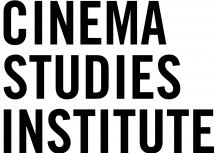CFP: 20/21 Vision: Speculating in Literature and Film in Canada (August 19-21, 2021. University of Saskatchewan)
CFP: 20/21 Vision: Speculating in Literature and Film in Canada (Abstracts Due: Feb. 1, 2021)
August 19-21, 2021
University of Saskatchewan, Saskatoon, Canada
Keynote speakers will be Cherie Dimaline, Governor General’s award-winning author of The Marrow Thieves, and Wayde Compton, author of the award-winning story collection The Outer Harbour.
NOTE: This is a revised and extended call for proposals, directed to participants other than those who were previously accepted to the 2020 conference, which was postponed because of the pandemic. Should we still be unable to meet in person in August, the conference will be converted to an online format.
In the midst of a global pandemic, the ways that speculative fiction, film, and television comment on the present as well as the future have become acutely evident. These genres ask readers to consider environmental, health, technological, and political events and developments in the world today, and the impacts these may have on the world of the future. They are often used by their creators to represent and speculate on key societal issues, such as relations of class, gender, and race, as well as issues of health safety, environmental destruction, and political conflict. In Canada, speculative writing has become a tool to interrogate colonial enterprises and open up spaces for marginalized groups, including women, Indigenous peoples, members of LGBTQ2S+ communities, and others whose lives are inflected by cultural difference. A variety of speculative worlds have achieved popularity through films and television/internet series, some of which are adapted from other genres.
20/21 Vision: Speculating in Literature and Film in Canada invites researchers and creators to present their own speculations about the futures and/or societies that are presented in various texts produced in or relating to Canada. What do speculative texts tell us? Which visions of “Canada” do we find in speculative texts? How do these visions reflect our own perceptions of the world? Does this kind of literary imagination offer space for grief, resilience, and hope? Does it help us respond constructively to crises or achieve social change?
Proposals for both papers and panels are invited. These can take a range of approaches related to speculative writing in Canada, including:
· Speculations on global pandemics and other health crises
· Environmental and/or technological changes and developments in speculative writing
· Speculations on language and power
· Indigenous and decolonizing speculations
· Gender and sexuality in speculative writing
· Disability in speculative writing
· Geographical speculations in the real or virtual world
· Speculative writing for children
· Speculative poetry
· Speculation and interdisciplinarity
· Dystopian, utopian, and anti-utopian worlds
· Apocalyptic scenarios and post-apocalyptic futures
· Speculations on the screen: movies, documentaries, television and internet series, video games
· Speculative adaptations
· Speculative creations, including short works of speculative fiction or poetry*
*The conference will also host sessions in which creators of speculative genres will be invited to present their works. Authors and artists are invited to propose 20-minute creative pieces; these may involve readings from written works, visual installations, performance pieces, or film presentations.
Proposals should include the following:
1. Your name, contact information (including email address and telephone number), and institutional affiliation.
2. The title of your proposed 15- to 20-minute paper or presentation, AND a proposal of 250-300 words, identifying the works that will be your focus of your paper and outlining the argument to be presented OR describing your creative piece and the method of presentation or performance.
3. A 50-word biographical statement.
Panel proposals should include the above information for all participants.
Please e-mail your proposal in a Word document to conference organizers Wendy Roy and Mabiana Camargo of the University of Saskatchewan at 2020vision@usask.ca by February 1, 2021 (extended deadline).
Additional conference acceptances will be emailed in March, 2021. For further information, please visit the website or send an email to 2020vision@usask.ca.
The University of Saskatchewan’s main campus is situated on Treaty 6 Territory and the Homeland of the Métis.
Archives
Membership Services / Adhésion
To join or renew with FMSAC, please click here to access Membership Services.
Pour se joindre à l'ACÉCM ou pour renouveler votre adhésion, cliquez ici pour accéder aux services aux membres.
For more information about membership benefits, click here.
Pour plus d'informations sur des avantages d'adhésion, cliquez ici.











